
Despite talk of historic cooperation, the divide between Mexico City & DC is deepening
by Luis Rubio, political analyst and Chair of México Evalúa.
Mexico City and Washington are the capitals of two neighboring nations whose interactions are among the most dynamic and complex in the world — yet whose leaderships could hardly be more distant or contrasting. Both countries are about to begin negotiations to review their existing trade agreement, but their perspectives are so different that, if current trends continue, it is hard to imagine a successful outcome.
For nearly two centuries, Mexico and the United States maintained a relationship that fluctuated between closeness and distance, conflict and limited cooperation. The border evolved significantly over time—most notably through Texas’s independence and the U.S. invasion of 1847 — while the Mexican Revolution of 1910 further strained relations as Mexico sought U.S. recognition of the new revolutionary regime. The relationship was functional but tense, full of ups and downs.
In the 1980s, Mexico decided…
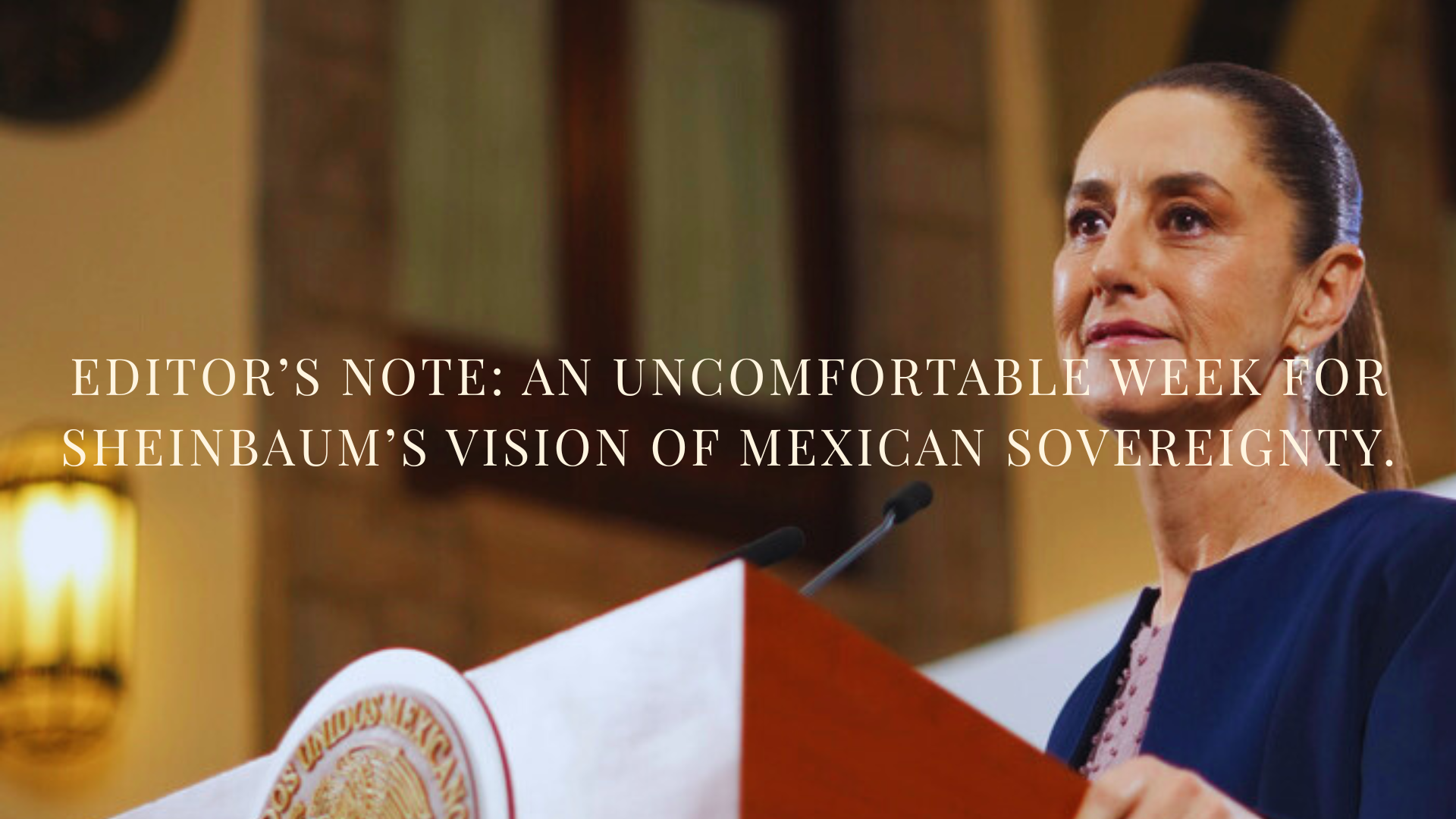
Editor’s note: An uncomfortable week for Sheinbaum’s vision of Mexican sovereignty
by Andrew Law, editor and founder.
This week a video circulated on social media of former Mexican president Felipe Calderón decrying the country’s freshly implemented judicial reform at Georgetown University in Washington, DC.
In it, Calderón called MORENA’s reform a “demolition project” that had likely rendered free elections a thing of the past. What seemed to irritate President Claudia Sheinbaum most, however, was Calderón’s suggestion that former US ambassador Ken Salazar should have intervened. Sheinbaum did not hold back at her morning press conference: “It's outrageous, there's no other word for it. He goes to the United States to say that the American ambassador should have intervened to prevent the judicial reform from passing. Aside from being spurious, he's a traitor.”
Sheinbaum rarely misses a chance to stress Mexico’s sovereignty in her dealings with Washington. When Secretary of State Marco Rubio visited last week to highlight security cooperation, the first line of the joint statement stressed respect for sovereignty, echoing…
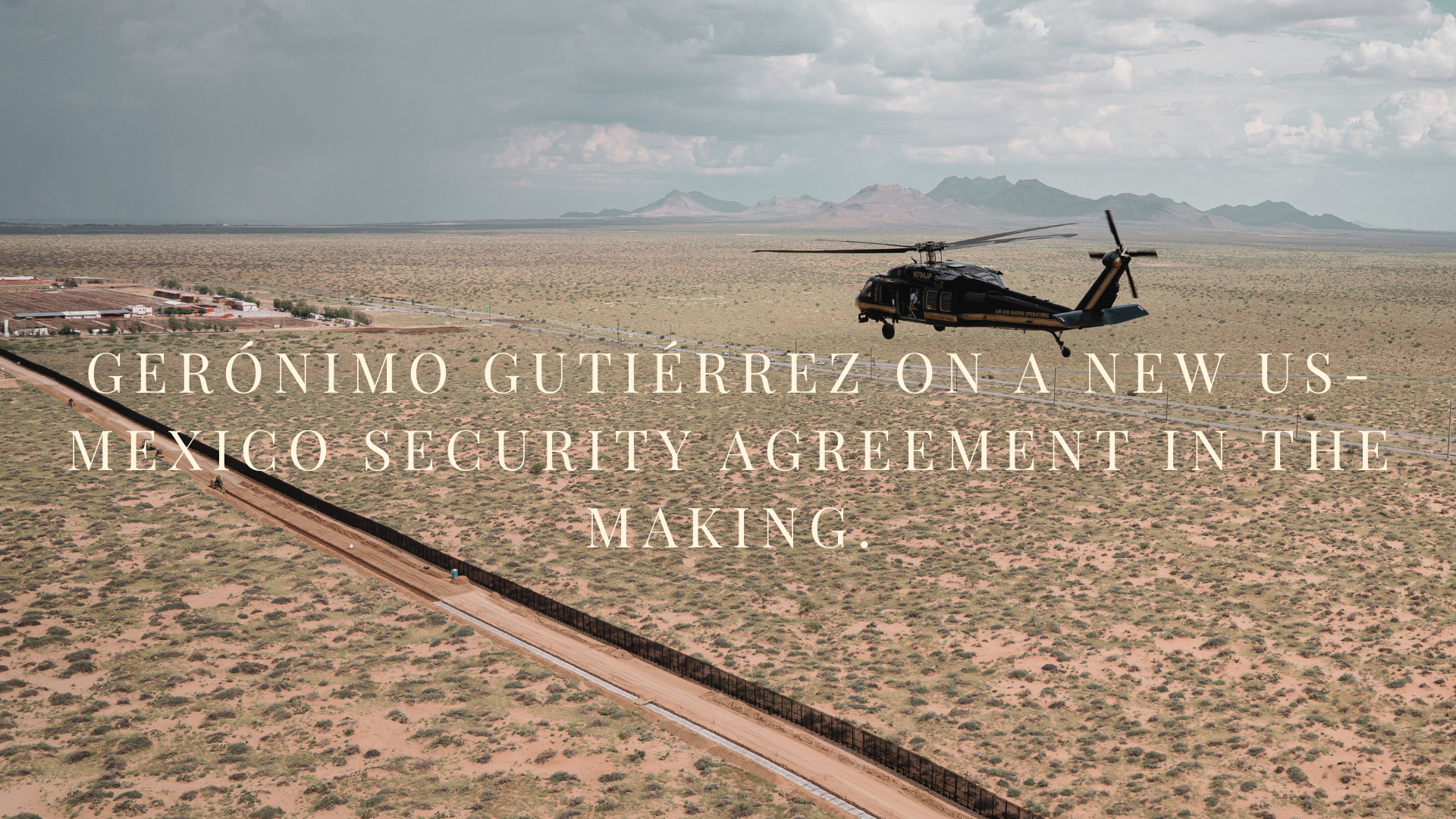
A new US - Mexico security agreement in the making
by Gerónimo Gutiérrez. Ambassador Gutiérrez served as Mexico’s Ambassador to the United States and as Mexico’s Deputy Secretary for Governance and Homeland Security.
—
Last week tensions between the US and Mexico governments surfaced again. President Sheinbaum denied the existence of an agreement between the Drug Enforcement Agency and the Mexican government. Her comments were directed towards a press release from the DEA announcing the launch of a “bold bilateral initiative to dismantle cartel gatekeepers and combat synthetic drug trafficking”. In my view, the rebuttal appears to be more the result of miscommunication than of the lack of willingness on both sides to strengthen cooperation. In fact, Sheinbaum confirmed that some form of security agreement is in the making and could be formalized in the next few weeks during a visit to Mexico of Secretary of State Marco Rubio. This was overlooked and could potentially be good news. Here are four takeaways of last week’s episode…
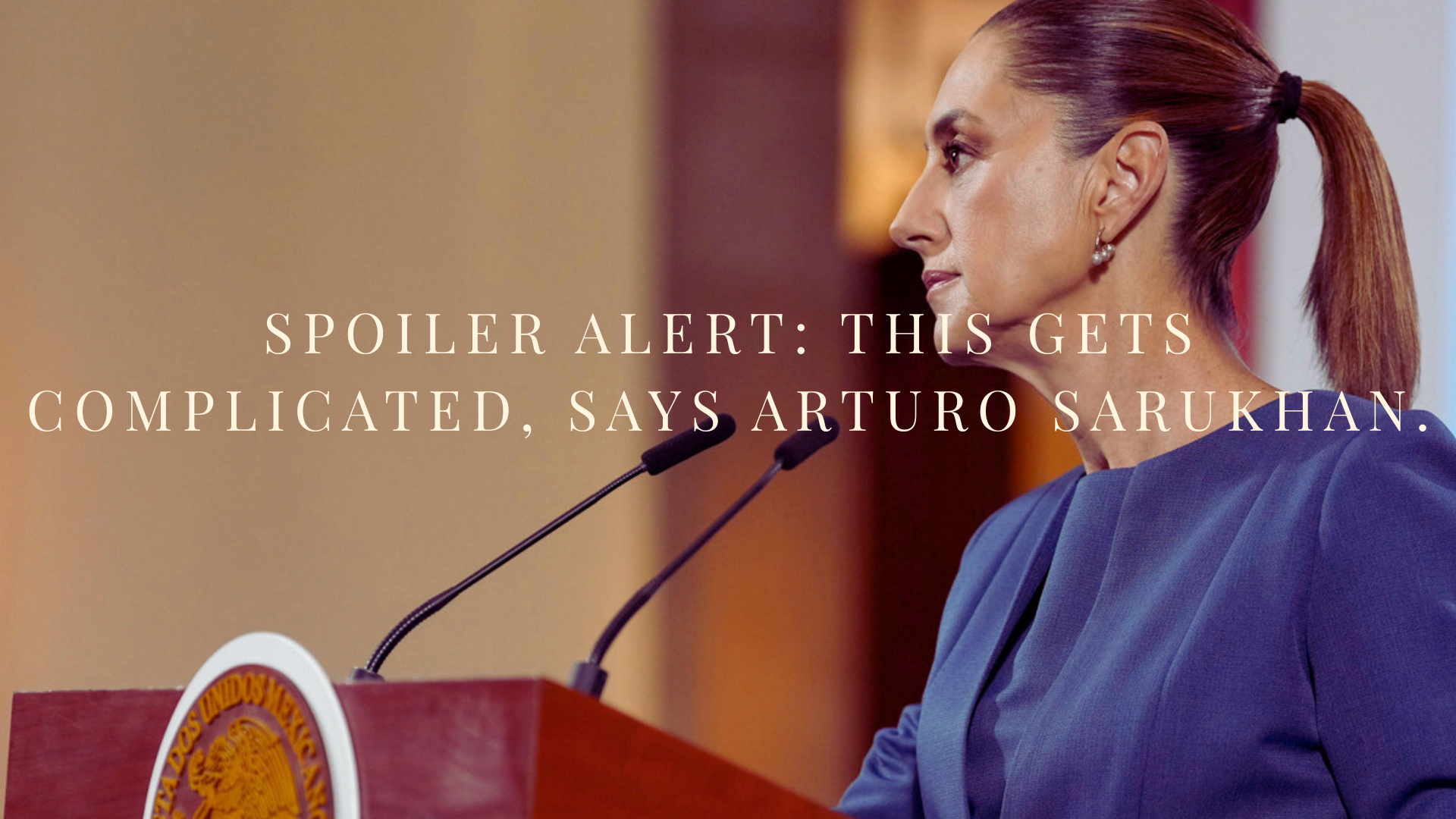
Spoiler alert: this gets complicated
In response to statements emanating from the Mexican presidential bully pulpit that with the United States “we are doing better than any other country,” that “we dialogue with respect and on equal terms,” and that “we coordinate, we collaborate, but we do not subordinate ourselves,”— and also in response to narratives about how Mexico and its president deal with Donald Trump — a steady dose of realism and a reality check - in Mexico’s Congress and across the media, business organizations, and society at large- are urgently required, and we need to carefully weigh where things stand.
While navel gazing in the current juncture of the relationship with the US may feed egos and polls, it’s also dangerous. It can make us short-sighted and cause us to lose sight of the reality looming beyond the horizon. This is especially true since 2018, when Mexico irresponsibly turned its back on the world and on its closest diplomatic and trading partner. But - with Trump having once again kicked the can down the road - Mexico now faces 90 days of uncertainty on tariffs. That’s on top of the looming threat of the unilateral US force against transnational criminal organizations, and a steady stream of pressure points from Washington on a wide-ranging number of issues across our shared bilateral agenda. At no time since her swearing in and — more importantly — during the six months that Sheinbaum’s government has coexisted with the new US administration, has such a national discussion been so urgent in Mexico.
What Mexican governments — both this one and the previous — have failed to grasp is…
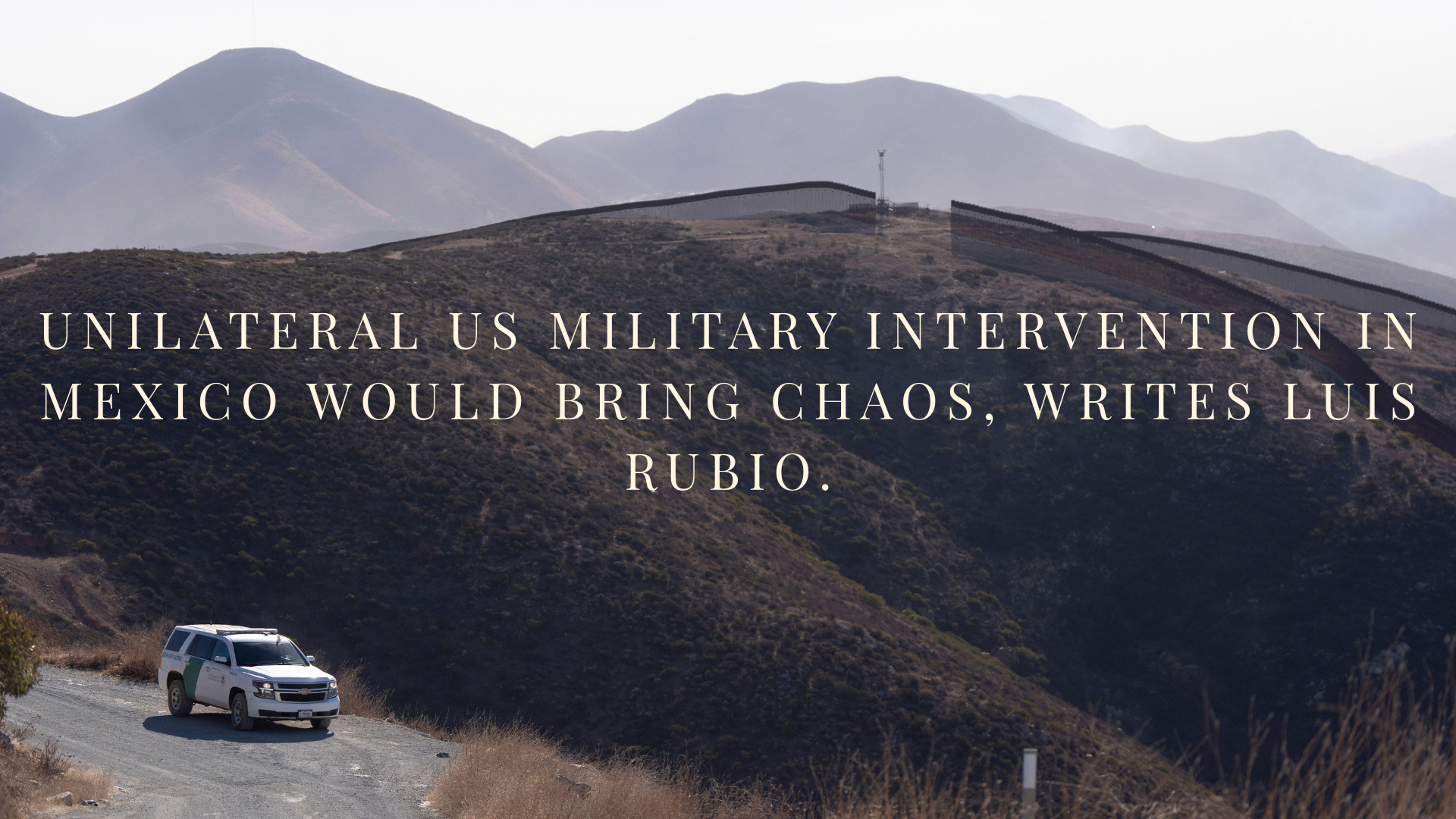
Unilateral US military intervention in Mexico would bring chaos
by Luis Rubio, political analyst and chairman of México Evalúa.
For months, talk has been circulating about a possible US military intervention in Mexico. The idea has gained traction here due to the presence of American intelligence ships in the Gulf of California and, more recently, the sighting of a drone over Valle de Bravo. The issue is also alive in the United States, at least since several Mexican criminal organizations were designated as terrorist groups. In fact, the debate has been simmering for years, as observers there note the growing chaos in certain regions of Mexico and the Mexican government’s seeming inaction. A recent video lays out, quite clearly, the perspective many Americans hold on the matter. No one knows if actual military action might occur — whether directly on the ground or indirectly from the air — but it is a subject that deserves careful analysis.
The video (viewable below) features Joshua Treviño at 35 seconds in. Treviño is a former US Army adviser now with America First, introduced — incorrectly — as a seasoned observer of US–Mexico relations. As I argue below, he has little to no understanding of the situation on the Mexican side…
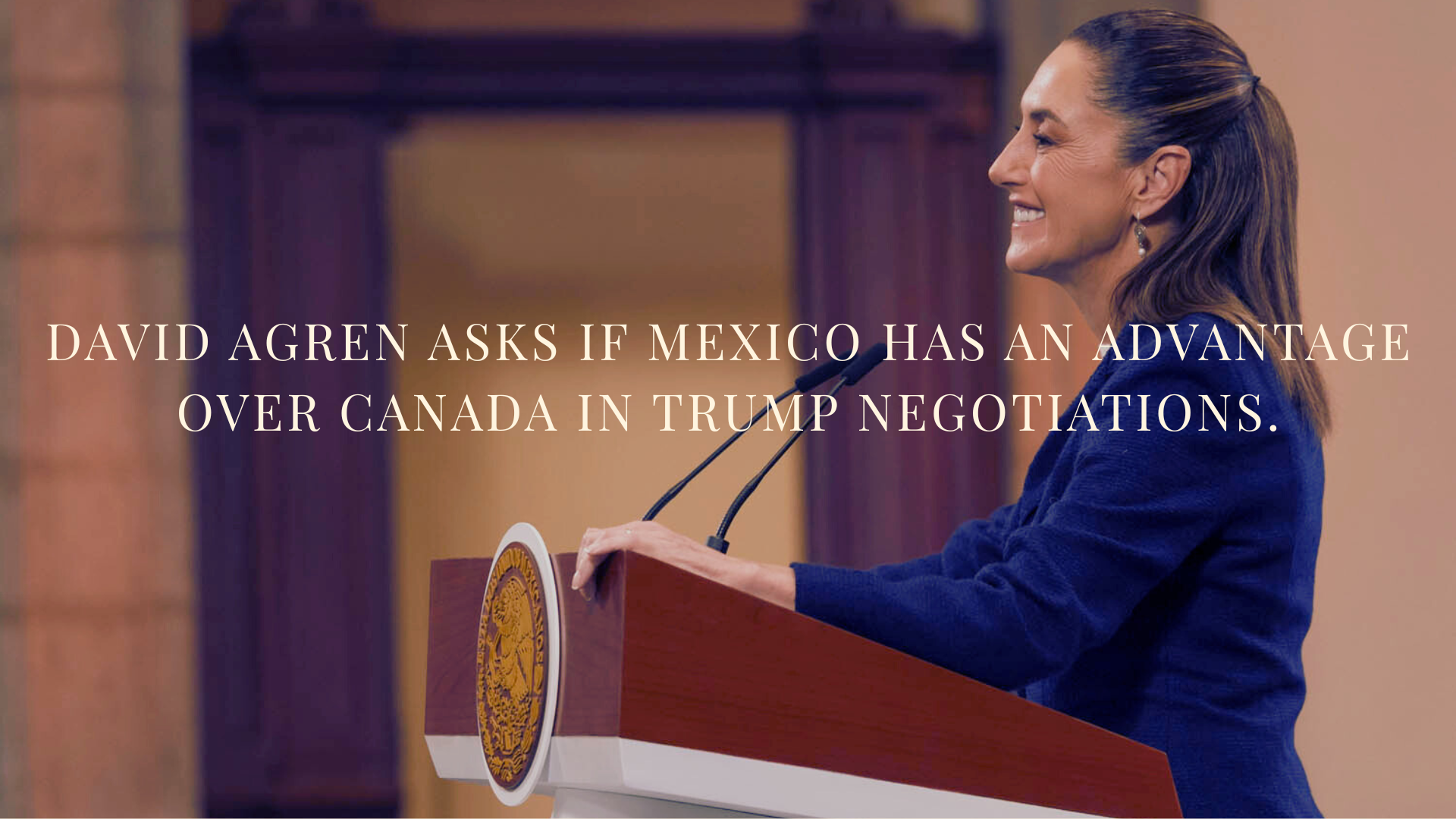
Does Mexico have a bargaining advantage over Canada?
Mexico expelled 26 narco bosses to the United States on Wednesday, responding to the Trump administration to crack down on drug cartels. Among those expelled were Servando Gómez Martínez, “La Tuta,” a former mouthpiece for La Familia Michoacana.
It resembled a similar expulsion of 29 narco bosses – including Rafael Caro Quintero, a man long sought by the Drug Enforcement Administration for the 1985 killing of agent Enrique (Kiki) Camarena.
President Claudia Sheinbaum defended handing over the capos as “sovereign decisions” and stating, “The decision is for our country’s security.”
The expulsions followed revelations in The New York Times that U.S. President Donald Trump quietly signed a directive allowing the use of military force against terror organizations in the Western Hemisphere. Those terror organizations include Mexican drug cartels.
Sheinbaum immediately responded…

Sheinbaum is facing Trump without a compass
by Luis Rubio.
Editor’s note: Mr. Rubio is a political analyst and Chairman of México Evalúa.
—
Trump sees no need to adhere to the traditional forms and rules of diplomacy. His “mandate” is clear, and he assumes it as absolute truth. If one adds to that his tactical way of acting (with no strategy whatsoever), the result is a bull in a China shop who recognizes no limits to his actions—except what works for him. If one observes how he has handled matters like Russia-Ukraine, China, Iran, Canada, NATO, etc., it becomes evident that he strikes first and then looks for a way to negotiate an exit. Those who have succeeded in dealing with him are the ones who offer a dignified way out, as has happened with NATO, China, and even Iran. That rather obvious lesson has not been learned by Claudia Sheinbaum’s government.
For Trump, there is a specific set of objectives he wants to achieve, which are key to his electoral base. Among those, Mexico plays a central role in two: migration and drugs, especially fentanyl. Biden promoted legislation regarding fentanyl, which Trump is now using to attack financial transactions and institutions allegedly involved in the commercialization, financing, and money laundering related to this drug.
Trump and his operators have a univocal and simplistic (not to mention oversimplified) view of the issues they prioritize. They fervently believe they can solve the fentanyl problem by bombing a few labs, or the migration issue by expelling people who are illegally present in the US. Their actions involve no consideration of causes, market dynamics, or whether the proposed actions are susceptible to solving the problem. Trump believes he has the power and is convinced he can use it to solve these issues—by force if necessary.
If one looks at how he operates, it's fairly obvious how to respond…


Claudia Sheinbaum faces adversity
by Luis Rubio.
Editor’s note: Mr. Rubio as a political analyst and chairman of México Evalua.
From the moment she was nominated as Morena's presidential candidate, speculation arose regarding her capacity and willingness to break with her predecessor, as has been the tradition in Mexican politics. Although speculation has not ceased, the evidence is overwhelming: the president sees herself as an operator or implementer of AMLO’s agenda. However, circumstances have changed, and the need to respond to a scenario infinitely more complex than the one her predecessor faced (in part due to the legacy he left behind) is forcing her to increasingly take actions that he clearly disapproves of. The question then is: what comes next?
In Mexican political tradition, it was said that the outgoing ruler did not choose a successor but rather an executioner. That clearly did not happen with AMLO, who carefully selected someone with the skills to manage a government, but not to undertake bold political initiatives. Which of these paths will prove true? So far, there is no doubt that AMLO’s logic dominates the landscape. At the same time, it’s not clear what the true profile of the government led by Sheinbaum actually is.
Boz, a publication focused on Latin American governments, conducted an interesting analysis of Claudia Sheinbaum.


Can Mexico and the US understand each other?
by Luis Lozano.
Perhaps one of the more complex relationships in the world is the one between Mexico and the United States. Sure, anyone will say that relationships between neighbors are always complex. Germany, France, Spain and England spent centuries at war between themselves to maintain access to markets, geographic dominium and prevalence of their religion. But their past is common, and their populations have lived in those places for millennia.
The US and Mexico are two young countries, shaped by distinct worldviews rooted in the different empires that conquered and created them. On the US side, the prevalence of puritanism and Protestantism. Britons settled in the Northeast based the culture on collective work and humbleness. On the Mexican side (including Texas and California), no colony was created, even though Mexicans like to call it like that; the strategy of the Catholic Spanish crown was to delegate royal power to the viceroy of the territory called New Spain. The Spaniards inherited a Roman tradition of incorporating conquered populations into their culture, which is why building cities, churches, and universities was so important to them. Both of the oldest universities in the Americas were founded by Spain in what is now Lima (Perú) and Mexico City in 1551. No university was founded in North America by the English settlers at the time.
However, once both countries fought for their independence, differences started to appear which saw the US become an Empire and Mexico a nation still struggling with its profoundly different realities. One of the most important chapters in the US-Mexico relationship is how Mexico lost half of its territory to the United States. How each country has internalized this historical event perfectly reflects their distinct, idiosyncratic identities and outlooks.

